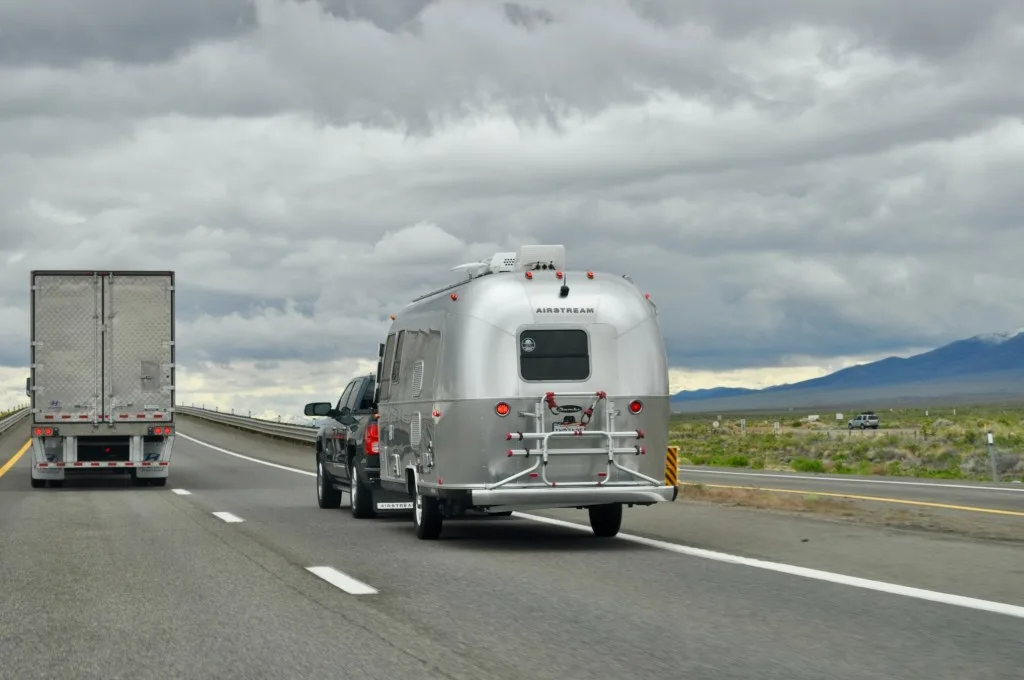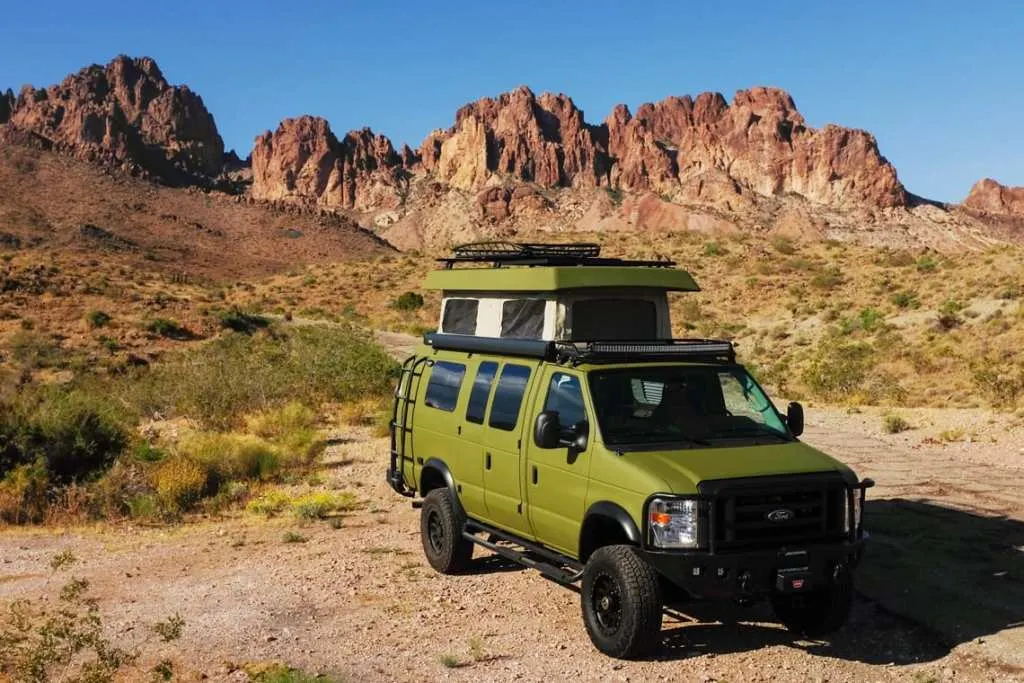When travelers set out on a camping adventure, they usually budget for food, fuel, attractions, tolls, campground fees, and other costs associated with travel. Whether it’s saving up for the trip of a lifetime or setting a monthly budget for weekend getaways, these are costs travelers are willing to pay.
However, budgets are taking a massive hit with the soaring prices of 2022. Food, campground rates, ticket prices, and more are all costing more than what most people budget. Fuel prices have dramatically increased, which affects every RVer. Will this change the RV industry?
Will people stop traveling because they can’t afford it? Let’s take a closer look!
Have Gas Price Increases Changed RVing?
The number of people hitting the road and going camping is still at an all-time high. However, many of those travelers are choosing to stay closer to home because of the rise in fuel prices. Full-time RVers are choosing to move less often.
According to the KOA May monthly research report, 32% of RVers aren’t changing their travel plans. Meanwhile, 30% plan to take fewer trips, and 29% choose to camp closer to home or travel shorter distances. There are still 65% of camping households that plan on camping in 2022.
So RVing hasn’t stopped, but how people are RVing has changed.

Does an RV Use a Lot of Gas?
Class A motorhomes don’t get very good gas mileage. They range from 6mpg to 14mpg for gas engines and 8mpg to 16mpg for diesel engines. Class C motorhomes get a little bit better fuel efficiency at 14mpg to 18mpg, while Class B camper vans get the best at 18mpg to 25mpg.
There are averages, so there are certainly motorized RVs that get more miles per gallon. However, it won’t be a huge increase like a Class A motorhome that gets 21mpg.
Another difference between these three motorized RV types is the fuel capacity. Many Class As have 100-gallon fuel tanks. So although they get the worst gas mileage, drivers can go farther on a tank of gas. Class Cs have around a 40-gallon to 60-gallon fuel tank, and Class Bs usually have a 25-gallon fuel tank. Therefore, Class Bs may get the best fuel efficiency, but drivers must stop more often to fill up at the pump.
FYI: Here’s the average MPG for RVs.
How Much Does Gas for an RV Cost?
Because of the various fuel tank sizes and the two different fuel types, the fuel cost varies from RV to RV. For example, a Newmar Dutch Star with a 100-gallon fuel tank is a diesel pusher. So with a gallon of diesel costing $6.00 per gallon, it will cost around $600 for the owners to fill up the tank.
A Winnebago Minnie Winnie with a 55-gallon fuel tank will cost about $275 to fill up with gas if the price is $5.00 per gallon. The Solera 24SRC by Forest River has a 26-gallon fuel tank and uses diesel.
At $6.00/gallon, it will cost only $156 to fill up, but the owner will be stopping more frequently because of the smaller fuel tank. Compared to a Newmar Dutch Star, you will have to fill up the Solera 24SRC four times before the Newmar needs to visit a fuel station.
What RV Has the Best Gas Mileage?
As mentioned above, Class B camper vans get the best gas mileage. Most of these RVs will get between 18mpg to 25mpg. This is because of their smaller size and lighter weight. A Class A can weigh between 20,000 pounds to 30,000 pounds and have a length of 30 feet to 45 feet. Those engines must work hard to get from Point A to Point B.
On the other hand, Class B camper vans aren’t much bigger than a standard minivan or cargo van. They usually weigh between 6,000 pounds and 10,000 pounds and stay between 17 feet and 23 feet in length. It’s much easier to maneuver them through city streets, park at grocery stores, and set up camp in small national park campsites.
They operate much more like a standard vehicle, thus, their gas mileage reflects that of a standard vehicle.

Which Is Better a Gas or Diesel RV?
Diesel engines are more fuel-efficient, getting a few more miles to the gallon than their gas engine counterparts. However, diesel pushers cost more upfront, cost more to maintain, and cost more to fill up at the pump. There are pros and cons to buying either type of RV.
Generally, an RV with a diesel engine has more power and torque. The ride can be smoother, especially going up steep grades. These RVs usually have a higher towing capacity as well. So owners who want to tow an enclosed trailer or large vehicle behind them can easily and safely do so with a diesel engine RV.
The additional power and strength of a diesel engine are why many owners choose to go with a diesel pusher. However, for owners on a more tight budget, gas engine RVs are more affordable and cost less when fueling up.
Know This: Why Does Diesel Cost More Than Gas!
How Can I Conserve Gas in My RV?
Speed is one of the biggest ways to affect fuel efficiency. RVers should stay around 60mph when driving down the interstate. Going slower or going faster will increase fuel consumption.
Starting and stopping also increased fuel consumption. Although owners don’t have much control over their route, RVers who drive city streets or roads with stop lights, construction, and bus stops will see their gauge drop faster than RVers who stick to interstates.
Another way to conserve gas is to travel as lightly as possible. Heavier RVs get fewer miles per gallon. If you can get by with less stuff in your RV, your engine will thank you. It may not make much difference, but changing from 11mpg to 13mpg is a reason to cheer with soaring fuel prices.
How Will Gas Prices Affect the RV Industry?
RVers are still going to hit the road this year. They’ve spent the money and made an investment, so they’re not going to just have their rigs sitting in the driveway or storage. Traveling is important to them, and spending time outdoors is a priority.
They may change how they travel by staying longer in one place or driving shorter distances. But they’re still going to do what they love.
Certainly, a few will say the rising fuel prices are too much and won’t venture out. But the majority of RVers share the feelings of Norm Demers. He says, “We’re living the life we want to.” The cost of fuel has changed his plans, though. “We had planned to go cross country this summer, but that’s going to be put off. We’ll do local stuff like going up to Virginia, going to the beach. We have friends in Myrtle Beach, so we’ll spend a couple weeks there.”
Have your travel plans changed due to the soaring fuel prices? If so, how?
Discover the Best Free Camping Across the USA
To be honest with you, we hate paying for camping. There are so many free campsites in America (with complete privacy).
You should give it a try!
As a matter of fact, these free campsites are yours. Every time you pay federal taxes, you’re contributing to these lands.
Become a FREE CAMPING INSIDER and join the 100,000 campers who love to score the best site!
We’ll send you the 50 Best Free Campsites in the USA (one per state). Access the list by submitting your email below: